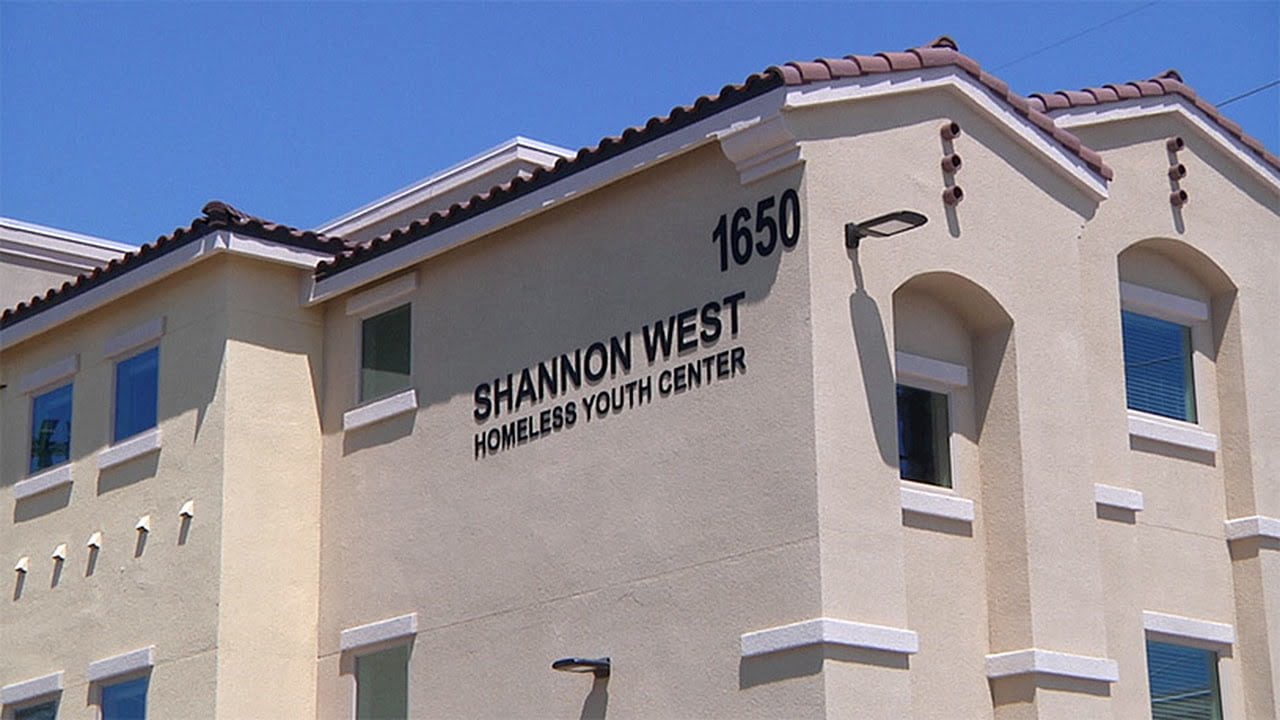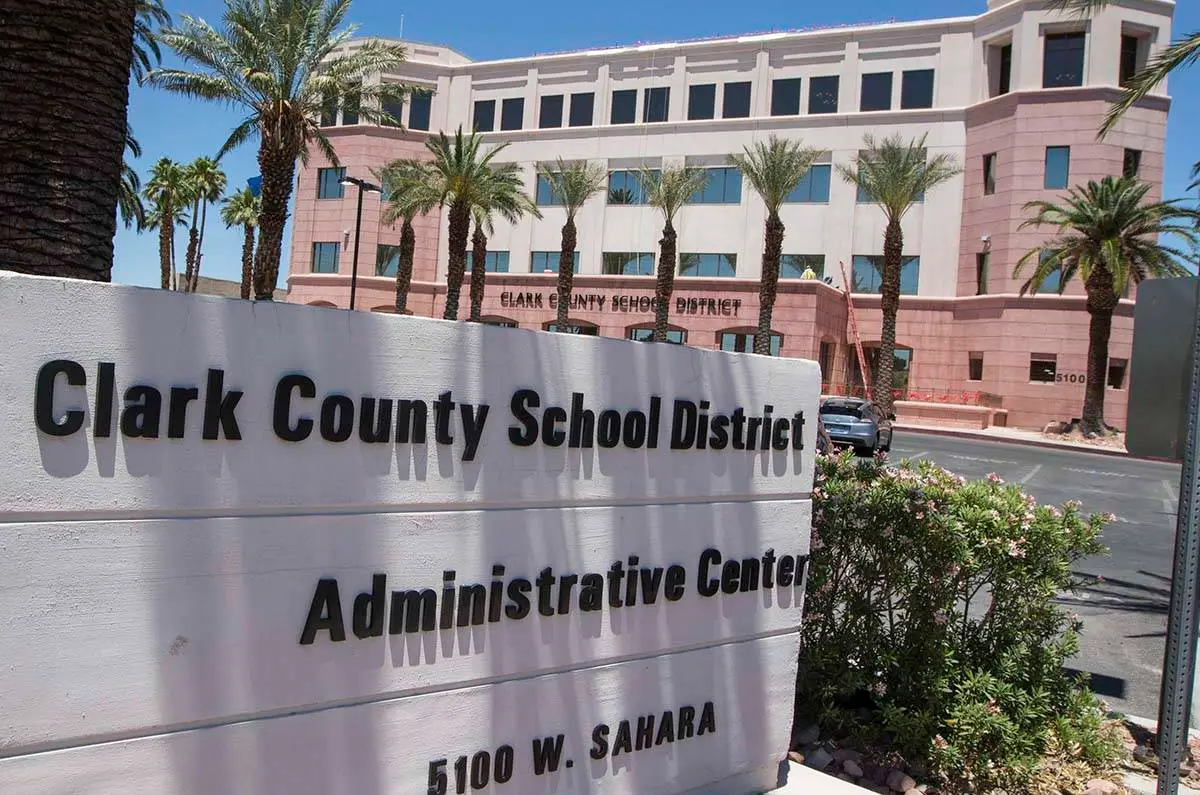NV Energy advierte sobre posibles cortes de energía preventivos debido a vientos superiores a 50 mph. La empresa podría llevar a cabo cortes de energía en zonas de alto riesgo para prevenir incendios forestales. En Mt. Charleston, se esperan condiciones climáticas adversas en las áreas de Kyle Canyon y Angel Peak. Cerca de 500 clientes podrían ser afectados a partir del sábado a las 11 a.m. y hasta por 24 horas. El servicio señala que los cortes podrían ser ajustados o cancelados si cambian las condiciones climáticas. NV Energy asegura que los equipos están preparados para responder ante posibles cortes de energía.
Se duplica cantidad de muertes por accidentes viales
Aumento alarmante de muertes peatonales en el valle. El año apenas comienza y ya se ha duplicado el número de fatalidades. Velocidad y intoxicación son principales factores. Carreteras son rápidas, anchas y largas. Tragedia reciente en Boulder Highway resalta peligros en vías. Residentes preocupados por seguridad. Expertos piden cambios en diseño vial. Oficiales de tráfico de Metro advierten en redes sociales. Seguridad vial es responsabilidad compartida. Mejoras en infraestructura vial son necesarias para proteger a peatones ya que la mayor parte de las calles se diseñaron cuando vivían aquí cien mil personas, y hoy somos casi 3 millones.
No se alarme si ve mucha actividad de bomberos hoy viernes
El equipo de rescate del Departamento de Bomberos del Condado de Clark estará practicando escenarios de rescate en el Virgin Hotels Las Vegas. El entrenamiento incluirá a bomberos descendiendo desde la azotea para simular el rescate de un lavador de ventanas incapacitado. El ejercicio tiene como objetivo brindar a los bomberos oportunidades únicas para probar habilidades de rescate técnico y medidas de seguridad.
Hoy viernes, regalarán alimentos en North Las Vegas
Si conoce a alguien que necesite apoyo para alimentación, este viernes 3 de mayo la Iglesia El Shaddai estará distribuyendo alimentos gratuitamente. Estarán atendiendo a los solicitantes a partir de las 8:00 a.m. a su sede en el 2075 N Lamb Blvd, en North Las Vegas. No se requiere documentación para recibir este beneficio. “Tenemos muchas llamadas pidiendo comida, debido a la alza en el precio. Estamos recalcalcando que no pedimos nada de documentación para poder obtener la comida”, indica el comunicado. Para más información, puede consultar el calendario de Three Square.
Abren boutique para apoyar a menores sin hogar
En Las Vegas, abrió sus puertas una boutique única en su tipo con el propósito de ayudar a jóvenes sin hogar. HELP of Southern Nevada se unió a Successful Survivors para inaugurar la Vegas Cares Boutique el miércoles. Este espacio seguro tiene como objetivo empoderar a los jóvenes y protegerlos contra traficantes. Rhonda Sciortino, cofundadora de Prevent Child Trafficking Vegas, expresó: “Ya tienen mucho en su contra”. La boutique trabaja para ayudar a jóvenes del Shannon West Homeless Youth Center.
Senator Jacky Rosen Launches New Ad in Spanish Highlighting Her Work to Lower Costs for Nevadans
New ad touts Jacky Rosen’s efforts to lower Nevada housing prices, stand up to bid drug companies to lower drug costs, and take on Big Oil to lower gas prices Today, U.S. Senator Jacky Rosen’s campaign released a new Spanish-language TV ad, “Sin Miedo,” about her fight to lower prices for hardworking Nevadans – including the cost of housing, prescription drugs, and gas.Rosen is leading the charge to bring down costs for Nevada families – working to crack down on corporate investors and price gouging in the housing market. She also successfully took on big drug companies to cap the cost of insulin at $35/month and finally allow Medicare to negotiate for lower drug costs. And, Rosen has called for a federal investigation into Big Oil mergers that greatly reduce competition and drive up gas prices at the pump.WATCH: The new ad is airing on broadcast and digital and is a part of the Rosen campaign’s ongoing outreach efforts to mobilize Nevada’s Latino community, which makes up nearly 20% of the electorate and will once again be decisive in the 2024 election.This is the second Spanish-language ad the Rosen campaign has aired this year. The previous ad, “Un Camino Diferente,” focused on Jacky’s untraditional path to office and her work to lower costs for Nevadan. The campaign has also placed a $14 million ad reservation that will run from last July through the November 5 election. While Senator Rosen is communicating to Nevada’s crucial Latino voters for the general election, extreme MAGA Republicans are facing a crowded and divisive primary between now and June 11.Transcript:(ANCHOR) Buenas noticias… Jacky RosenGood news… Jacky Rosen(ANCHOR) “Tomando medidas enérgicas”Taking strong measures(ANCHOR) “la senadora Jacky Rosen”Senator Jacky RosenJacky Rosen está haciendo responsables a los inversionistas por el aumento del costo de la viviendaJacky Rosen is holding investors accountable for raising the price of housing.Se enfrentó a las petroleras por estafar a la gente a la hora de echar gasolinaShe took on big oil for gouging consumers at the pump.Rosen luchó contra las compañías farmaceuticas y ganó, fijando el costo de la insulina a $35 dólares al mes para todos.And Rosen fought the big drug companies and won, capping the cost of insulin at $35 a month for everyone.Luchando, sin miedo es nuestra senadora, Jacky Rosen.Fighting fearlessly is our Senator, Jacky Rosen.Soy Jacky Rosen and I approve this message.
Más trabajo: el Venetian invertirá $1.5 Billones en remodelar sus suites
El Venetian Resort en Las Vegas se someterá a una extensa renovación de $1.5 mil millones, descrita como la más grande y costosa en sus 25 años de historia. Se anunció el miércoles que se está llevando a cabo una rebranding integral para las 4,000 suites de las torres y el centro de convenciones del Venetian. Patrick Nichols, presidente y CEO del Venetian Resort, expresó: “El espíritu innovador del Venetian Resort ha tenido un gran impacto en Las Vegas en los últimos 25 años y allanó el camino para nuestra reinversión visionaria de $1.5 mil millones hoy”. Los diseños de las nuevas suites están inspirados en los trajes del Carnaval de Venecia, “infundiendo energía, espíritu y calidez en un diseño contemporáneo y fresco”, según el anuncio. Las suites estarán disponibles para estancias a partir de este septiembre. Se invertirán $188 millones para renovar el centro de convenciones, agregando una nueva paleta de colores y espacios de salón de lujo. Esta remodelación está programada para comenzar en el verano. Se esperan nuevos restaurantes, con más detalles que se anunciarán más adelante este año.
Hasta California para traer maestros al CCSD
El Distrito Escolar del Condado Clark está lanzando una campaña de reclutamiento para atraer maestros de California con la promesa de salarios competitivos y un costo de vida más asequible en Nevada. Se espera contratar alrededor de 1,400 nuevos maestros para el próximo año escolar. La campaña, titulada “Somos Las Vegas; somos CCSD”, incluye videos que destacan Las Vegas como un excelente lugar para vivir y trabajar. Funcionarios del distrito, incluida la superintendente interina Brenda Larsen-Mitchell, promueven la campaña para atraer a candidatos en busca de nuevas oportunidades, especialmente en medio de despidos masivos en los distritos escolares de California. Además, la Junta Escolar votó para ofrecer puestos docentes vacantes a jubilados calificados si se agotan los esfuerzos para reclutar a no jubilados.
Así serán los trenes de Brighline West
Brightline West contará con trenes de Siemens Mobility capaces de alcanzar 220 mph en su línea de ferrocarril de alta velocidad de Las Vegas a Southern California. Cada tren tendrá siete coches con capacidad para 434-450 pasajeros y hará el viaje en menos de dos horas. Los pasajeros podrán transferirse al Metrolink en Rancho Cucamonga para conectar con el centro de Los Ángeles. El CEO de Brightline, Michael Reininger, destacó que esta alianza establecerá la base para una industria de ferrocarril de alta velocidad de costa a costa. El contrato incluye la fabricación de 10 trenes AP 220 y un contrato de mantenimiento de material rodante por 30 años. Este acuerdo creará empleos y una nueva cadena de suministro en Nevada.
DEA propondrá reclasificar la marihuana como droga menos peligrosa
La Agencia de Control de Drogas de EE. UU. (DEA por sus siglas en inglés) se prepara para reclasificar la marihuana como una droga menos peligrosa, según ha informado The Associated Press, en un cambio histórico para las políticas de drogas estadounidenses que podría tener amplios efectos en todo el país. La propuesta de la DEA, que aún debe ser revisada por la Oficina de Administración y Presupuesto de la Casa Blanca, reconocería los usos médicos del cannabis y admitiría que tiene menos potencial de abuso que algunas de las drogas más peligrosas del país. Sin embargo, no legalizaría la marihuana para uso recreativo. La medida de la agencia, confirmada a AP el martes por cinco personas familiarizadas con el asunto que hablaron bajo condición de anonimato para discutir la revisión regulatoria sensible, elimina el último obstáculo regulatorio significativo antes de que el cambio de política más grande de la agencia en más de 50 años pueda entrar en vigor. Una vez que la OMB apruebe, la DEA abrirá un período de comentario público sobre el plan para trasladar la marihuana desde su clasificación actual como droga de Clase I, junto con la heroína y el LSD, a la Clase III, junto con la ketamina y algunos esteroides anabólicos, siguiendo una recomendación del Departamento de Salud y Servicios Humanos. Después del período de comentarios públicos, la agencia publicaría la regla final. Este cambio llega después de que el presidente Joe Biden pidiera una revisión de la ley federal sobre marihuana en octubre de 2022 y se moviera para perdonar a miles de estadounidenses condenados federalmente por posesión simple de la droga. También ha instado a gobernadores y líderes locales a tomar medidas similares para borrar las condenas por marihuana. “Los antecedentes penales por uso y posesión de marihuana han impuesto barreras innecesarias al empleo, la vivienda y las oportunidades educativas”, dijo Biden en diciembre. “Demasiadas vidas se han visto afectadas debido a nuestro enfoque fallido hacia la marihuana. Es hora de corregir estos errores”.









